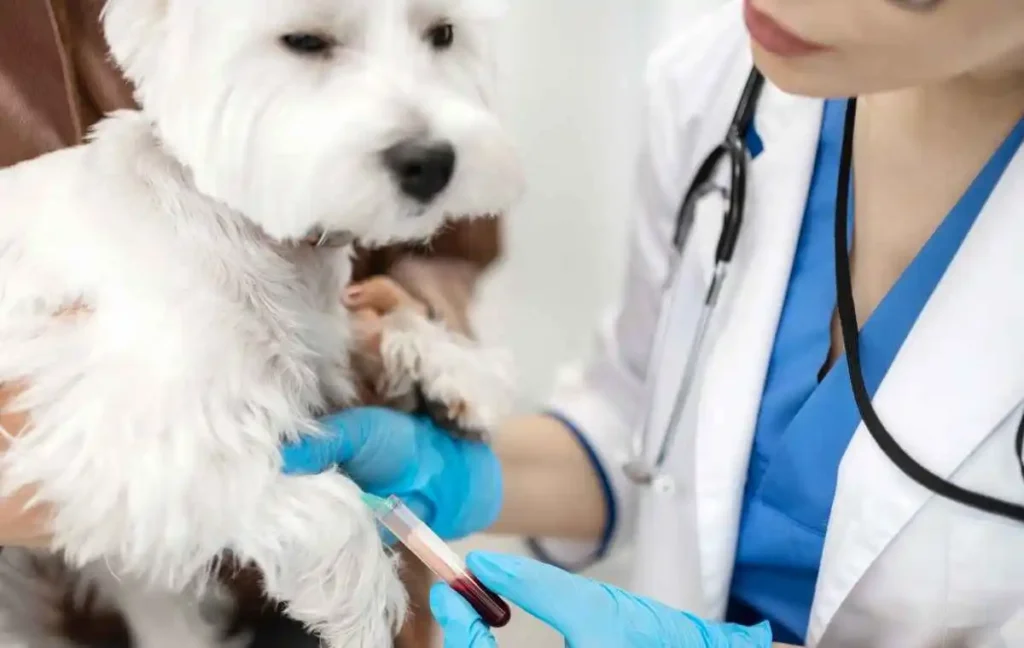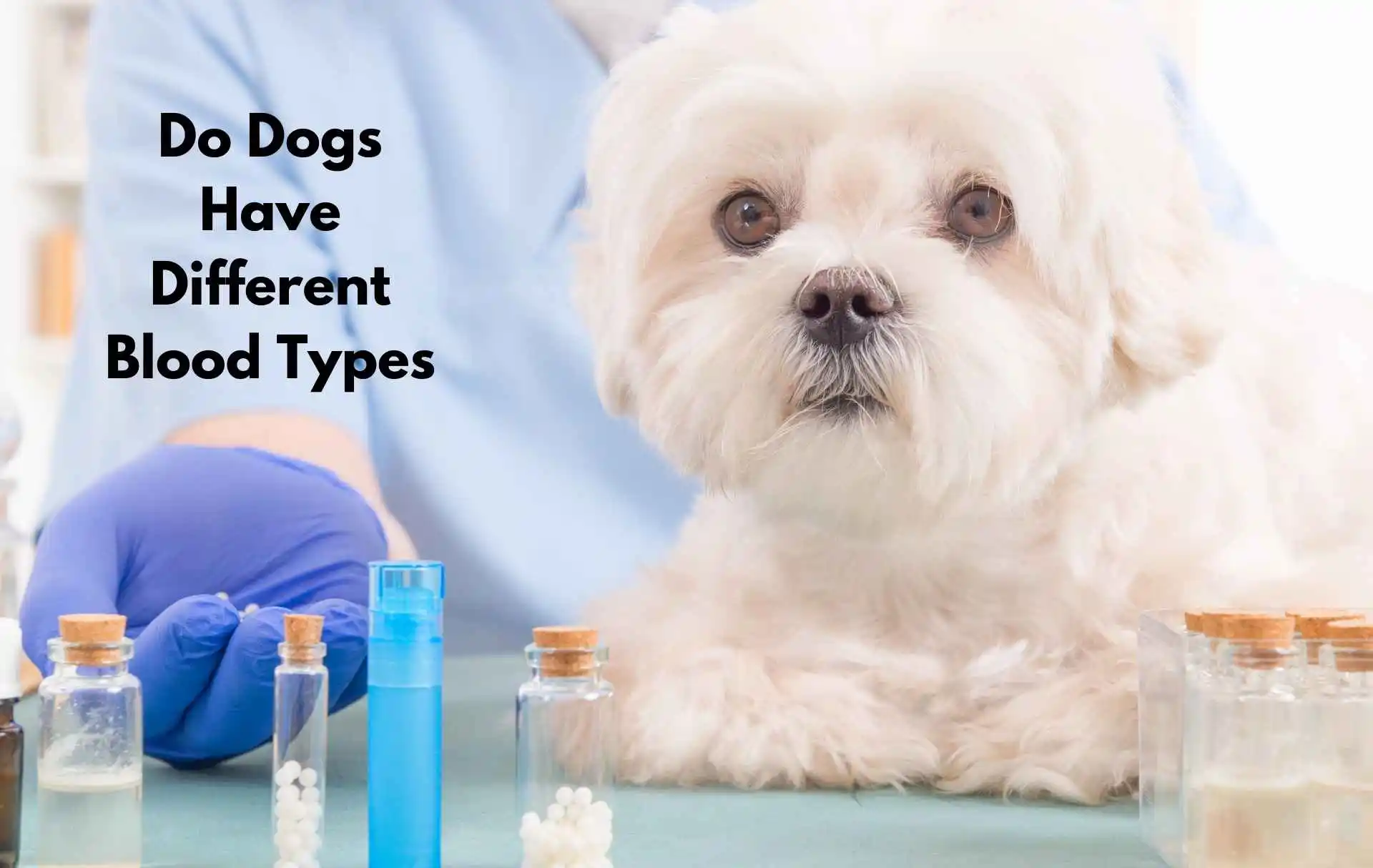Dogs have different blood types that can play a significant role in their health, especially in emergency situations. While many pet owners are unaware of this fact, understanding canine blood types is crucial when it comes to treatments like blood transfusions.
Dogs possess a complex system of blood types classified under the Dog Erythrocyte Antigen (DEA) system, which determines compatibility for transfusions. Knowing whether dogs have different blood types and how this affects their care can be life-saving information.
This article dives into the world of canine blood types, why they matter, and what every pet owner should know to ensure their furry friend’s well-being.
Understanding Canine Blood Types
While most people are familiar with human blood types like A, B, AB, and O, dogs have a different system altogether. Dogs have blood types based on a classification system called DEA (Dog Erythrocyte Antigen). Currently, there are over 12 identified DEA types, with the most significant ones being DEA 1.1, DEA 1.2, and DEA 7. The most important among these is DEA 1.1, as it plays a major role in blood transfusions.
Key Facts About Canine Blood Types:
- The primary blood group in dogs is D-E-A 1.
- Unlike humans, dogs do not have naturally occurring antibodies against other blood types, which makes the first blood transfusion usually safe.
Understanding the complexities of these blood types can be critical, especially if your dog needs emergency medical treatment involving a blood transfusion.
Importance of Blood Typing in Dogs
Unlike humans, where blood type mismatch can lead to severe reactions, dogs have a bit more leeway. However, once exposed to a different blood type, they can develop antibodies, making future transfusions potentially dangerous without proper blood typing.
Why Blood Typing of dogs Matters:
- Prevents adverse reactions during blood transfusions.
- Helps vets find suitable donor matches quickly in emergencies.
- Ensures a higher survival rate for dogs requiring surgery or critical care.
Veterinarians can perform blood typing tests to identify a dog’s blood group, ensuring safe and compatible transfusions when needed.
Can Dogs Donate Blood?

Yes, dogs can be blood donors, However, there are specific criteria that a dog must meet to become a donor. Generally, donor dogs are large breeds, over 50 pounds, healthy, and between the ages of 1 to 7 years. They must also be free of diseases and parasites.
Criteria for Canine Blood Donors:
- Healthy and up-to-date on vaccinations.
- No history of previous transfusions.
- Free from infectious diseases like heartworm.
- Calm temperament, as the donation process can take up to 30 minutes.
Dog blood banks are becoming more common as pet owners recognize the importance of having a supply of compatible blood available for emergencies.
How Blood Transfusions Work for Dogs
The process involves transferring blood from a healthy donor to a recipient dog, but only after ensuring compatibility through blood typing.
When Dogs Might Need a Transfusion:
- Conditions like immune-mediated hemolytic anemia (IMHA).
- Surgeries where significant blood loss is expected.
The procedure is similar to human blood transfusions, but with additional checks to confirm blood type compatibility and prevent adverse reactions.
Common Myths About Dog Blood Types

Understanding canine blood types is crucial, especially when it comes to situations like blood transfusions. However, there are several myths and misconceptions surrounding the topic that can lead to confusion among pet owners. Let’s debunk some of the most common myths about dog blood types and clarify the facts.
All Dogs Can Safely Receive Blood from Any Other Dog
This is one of the biggest misconceptions. Many people believe that any dog can safely receive blood from another dog, but this is not true. Although the first transfusion might be relatively safe if a dog has never had a prior blood transfusion, subsequent transfusions can be dangerous if the donor blood is not a perfect match.
Once a dog has been exposed to a different blood type, its immune system can develop antibodies. If a dog receives mismatched blood in future transfusions, it could lead to severe reactions, including life-threatening conditions like hemolysis (destruction of red blood cells).
Blood Typing is Unnecessary for Dogs
Some pet owners believe that blood typing is not essential for dogs, but this couldn’t be further from the truth. Blood typing is critical, especially in emergency situations where a dog may require a transfusion due to injury or surgery.
Blood typing helps veterinarians determine the safest match for a transfusion, reducing the risk of severe allergic reactions or rejection. Knowing whether your dog is DEA 1.1 positive or negative can be a lifesaver if they ever need an emergency transfusion.
All Dogs Have the Same Blood Type
Unlike humans who have four main blood types (A, B, AB, and O), dogs have a more complex system with at least 12 known blood types categorized under the Dog Erythrocyte Antigen (DEA) system.
Not all dogs are compatible with each other, especially when it comes to DEA 1.1 positive and negative dogs. Knowing your dog’s blood type can prevent complications if a transfusion becomes necessary.
Only Purebred Dogs Have Different Blood Types
It’s a common belief that only purebred dogs have unique blood types, but this is not true. Blood types vary among all dogs, whether they are purebred or mixed breeds. The variation in blood types is not related to breed but rather to genetic differences among individual dogs.
Mixed breed dogs can have the same blood type diversity as purebreds. Therefore, blood typing is equally important for both purebred and mixed breed dogs to ensure safe transfusions.
Dogs Can Receive Human Blood in an Emergency
Some people mistakenly believe that dogs can receive human blood if canine blood is not available.. Canine and human blood are not compatible, and transfusing human blood into a dog can lead to severe, life-threatening reactions.
Dogs have unique blood antigens that are not found in humans, making human blood completely incompatible. In emergencies, it is better to use a universal canine donor or pre-screened dog blood banks.
Blood Typing is a Complicated and Costly Process
Many pet owners assume that blood typing is a complex and expensive procedure, so they avoid getting it done. However, modern veterinary practices have made blood typing relatively simple and affordable.
Blood typing is a quick procedure that can be done with a blood typing kit in most veterinary clinics. It’s a small investment compared to the potential risks of an incompatible transfusion, which could lead to serious health complications or even death.
Dog Blood Type Can Change Over Time
There’s a misconception that a dogs blood type can change as they age or after medical treatments. This is not true. A dog’s blood type remains the same throughout its entire life, just like in humans.
Once a dog is blood-typed, that information is permanent and can be stored in their medical records for future reference. However, after receiving a transfusion, they may develop antibodies, which means blood compatibility checks will be necessary before any subsequent transfusions.
Human vs. Dog Blood Types
| Feature | Humans | Dogs |
| Number of Blood Types | 4 (A, B, AB, O) | Over 12 (DEA system) |
| Universal Donor | O-negative | DEA 1.1 negative |
| Compatibility in First Transfusion | Critical | Usually safe (first transfusion) |
| Natural Antibodies | Yes | No |
How Do Veterinarians Perform Blood Typing?

Blood typing in dogs is relatively straightforward and can be done using a blood typing kit. Veterinarians collect a blood sample and mix it with specific reagents to detect the presence of DEA antigens. This process can usually identify if a dog is DEA 1.1 positive or negative, which is the most critical factor in blood transfusions.
Steps Involved in Blood Typing:
- Mixing with Reagents: The sample is mixed with antibodies to test for specific DEA antigens.
- Observation: If agglutination (clumping) occurs, it indicates the presence of a particular antigen.
These tests are essential for dogs that may need frequent transfusions, such as those with chronic illnesses or undergoing major surgeries.
Conclusion:
So, do dogs have different blood types? Absolutely! Understanding that dogs have distinct blood types and the implications for their health can make all the difference, especially in emergency situations. Blood typing and compatible transfusions can save lives, ensuring that your pet receives the best possible care when it matters most.
For pet owners, staying informed about their dog’s blood type can be a lifesaving measure. If you have a dog that may require a transfusion in the future, consider having them blood typed in advance. This proactive step can ensure that your furry friend has the best chance of recovery in a critical moment.
